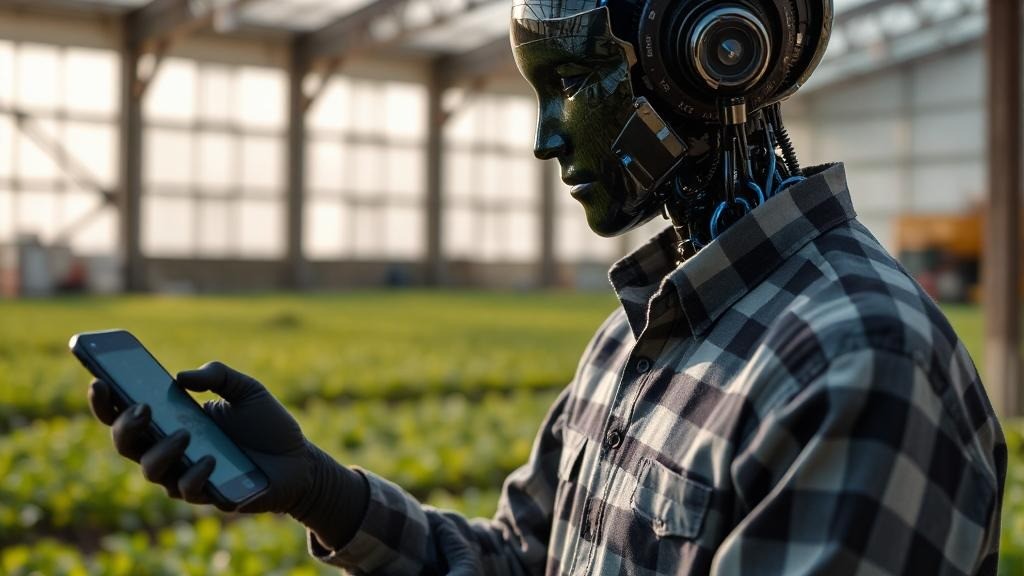Today, cutting-edge technologies are reshaping how we cultivate, harvest, and manage our food systems.

FinTech BizNews Service
Mumbai, May 25, 2025: Agriculture, the backbone of many economies, is undergoing a profound transformation. Prabhu Elangovan, Digital Transformation & AI Leader, has shared useful insights on the subject through his latest LInkedin post under #PrabhuTalks:
AI and Blockchain have high potential to power the AgriTech industry and fundamentally transform the entire ecosystem, much like the telecom industry's monumental shift from landlines to smartphones
This is not just an upgrade; it's a complete revolution in how we feed the world!
Sowing the Seeds of the Future: AgriTech and Digital Public Infrastructure Revolutionize Farming
Agriculture, the backbone of many economies, is undergoing a profound transformation. Gone are the days when farming relied solely on traditional methods. Today, cutting-edge technologies are reshaping how we cultivate, harvest, and manage our food systems. Hand-in-hand with these innovations, the concept of Digital Public Infrastructure for Agriculture is emerging as the critical foundation for sustainable and efficient growth.
Cutting-Edge Technologies and Their Impact in the Agriculture Industry (AgriTech)
AgriTech, a portmanteau of Agriculture and Technology, encompasses a wide array of innovations designed to improve yield, efficiency, and sustainability. These technologies are not just futuristic concepts; they are already making a tangible difference on the ground:
Furthermore, AI increasingly fuels Blockchain to transform AgriTech solutions. AI's analytical power can process the vast, immutable datasets stored on blockchain ledgers – from farm-to-fork traceability to quality control – providing deeper insights into supply chain efficiencies, fraud detection, and optimized smart contracts for agricultural transactions. This synergy builds greater trust, efficiency, and intelligence into every stage of the food journey.
The impact of AgriTech is multifaceted: increased productivity, reduced operational costs, enhanced resource efficiency, improved food quality and safety, and greater resilience against environmental challenges. It's truly enabling farmers to cultivate the future.
Digital Public Infrastructure for Agriculture: The Bedrock of Transformation
While individual AgriTech solutions offer immense promise, their full potential can only be realized when supported by robust Digital Public Infrastructure (DPI). Just as Aadhaar and UPI revolutionized identity and payments, DPI for agriculture aims to create interoperable, open, and accessible digital platforms for the sector.
What does DPI for agriculture entail?
Consider a farmer without these technological solutions. They might struggle to even know about, let alone register for and avail, essential government subsidies, leading to missed opportunities. Predicting future financial needs, planning for crop cycles, or projecting profitability becomes a constant struggle against uncertainty and potential losses. Technology, powered by DPI, empowers this same farmer to easily access, register for, and avail eligible schemes proactively. They can now make predictive estimates for their future plans and financial needs, effectively mitigating risks and turning potential losses into profit.
The role of DPI is to democratize access to technology, data, and services for every farmer, irrespective of their scale or location. It fosters an ecosystem where innovations can thrive, ensuring that the benefits of AgriTech are not limited to a select few but empower the entire agricultural community. By providing the digital rails, DPI accelerates the adoption of AgriTech, enhances transparency, reduces information asymmetry, and promotes data-driven decision-making across the agricultural value chain.
Cultivating a Prosperous Tomorrow
The convergence of cutting-edge AgriTech and robust Digital Public Infrastructure for Agriculture promises a future where farming is more productive, profitable, and sustainable. This synergy will not only ensure food security for a growing global population but also uplift the livelihoods of millions of farmers, making agriculture a truly future-ready industry.